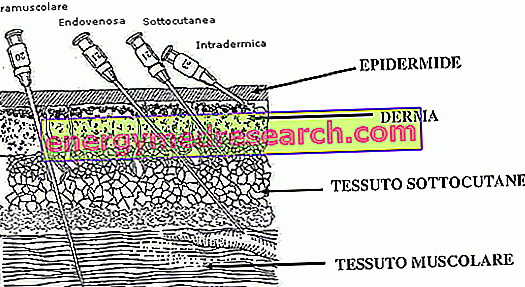Related articles: Asperger syndrome
Definition
Asperger's syndrome is an autism spectrum disorder, which involves behavioral and communication problems and in interaction with other individuals. Like autism, this condition is among the pervasive developmental disorders.
The causes have not yet been identified with certainty, but it seems that the synergistic action of various genetic and environmental factors is involved at the origin of this clinical picture. The result is a behavioral syndrome associated with a brain and mental developmental disorder, which determines alterations of nervous functions and psycho-cognitive and emotional disorders.
Most common symptoms and signs *
- Aggression
- alexithymia
- anhedonia
- Apraxia
- Impulsive behavior
- Learning difficulties
- Difficulty concentrating
- Mood disorders
- ecolalia
- Avoidance
- Social phobia
- Insomnia
- Hyperesthesia
- Hypoaesthesia
- hypomimia
- Social isolation
- Tic
Further indications
The symptoms of Asperger's syndrome can occur from early childhood, with varying degrees of severity. Those affected have behavioral disorders, difficulties in social interaction and communication problems, but in a lighter and more nuanced way than autism.
Subjects with Asperger's syndrome do not have speech disorders, but the use and understanding of verbal expressions is very literal; during an approach, an abnormal fixation on a specific topic or unilateral verbosity may occur. Even the capacity for abstraction is limited, as is the use of imagination. These pragmatic deficits are also evident in the rigidity of thought and the difficulty in recognizing irony and idioms or in understanding metaphors and jokes.
In Asperger's syndrome, cognitive functions are generally better than autism; affected individuals do not have intellectual disabilities, but often have a restricted repertoire of interests and activities, which are pursued in a manic way until they excel - sometimes - in specific sectors.
People with Asperger syndrome tend to isolate themselves and exhibit repetitive, unusual, bizarre and stereotyped behaviors. Often, these symptoms are associated with physical embarrassment (difficulty in learning to walk, poor ability in games involving movement, tics, strange postures and locomotor problems), lack of empathy, absence of facial expressions and accentuated or reduced sensory responses (eg . hypo - or hypersensitivity towards noise, smells or tastes).
The diagnosis is made clinically from 3-4 years of age by a multidisciplinary group of specialists, which must include child neuropsychiatrists, psychologists and pediatricians.
As for autism, the treatment of Asperger's syndrome is represented by behavioral therapy (educational and psycho-behavioral interventions) and, sometimes, by pharmacological therapy.



